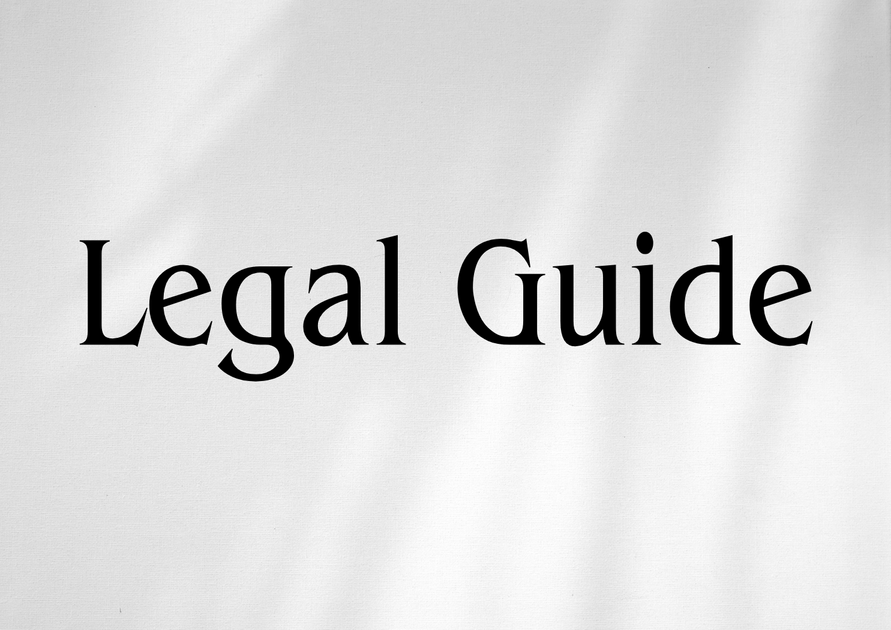Introduction
In the modern global business environment, efficient dispute resolution is vital for maintaining commercial confidence and protecting economic interests. As the United Arab Emirates (UAE) cements its role as a business and arbitration hub in the Middle East and North Africa (MENA) region, understanding the recognition and enforcement of arbitral awards in UAE courts has never been more critical. This topic gains even greater importance in light of significant legal reforms, most notably Federal Law No. 6 of 2018 on Arbitration and its practical application across local jurisdictions. For corporate leaders, legal practitioners, HR managers, and business owners operating in the UAE, mastering the nuances of enforcement mechanisms is a cornerstone of sound risk management and legal compliance.
Recognizing the strict requirements set forth by UAE law—and the opportunities offered by international conventions such as the New York Convention—will empower stakeholders to streamline dispute resolution, safeguard company interests, and prevent unnecessary litigation exposure. This expert legal analysis provides a consultancy-grade exploration tailored for organizations seeking clarity and confidence in their cross-border transactions.
Table of Contents
- The Legal Framework for Arbitration in the UAE
- Recognition and Enforcement: Key Principles Explained
- Analysis of Federal Law No. 6 of 2018 on Arbitration
- Comparing UAE Arbitration Law Before and After 2018
- Step-by-Step Guide to Enforcing Arbitral Awards in UAE Courts
- Public Policy and Grounds for Refusal
- International Awards and the New York Convention
- Practical Consultancy Insights and Risk Management
- Case Study: Enforcing a Foreign Arbitral Award
- Compliance Strategies for Businesses in the UAE
- Conclusion: Shaping the Future of Arbitration in the UAE
The Legal Framework for Arbitration in the UAE
Federal Law No. 6 of 2018 (UAE Arbitration Law)
In June 2018, the UAE promulgated Federal Law No. 6 of 2018 Concerning Arbitration (the “Arbitration Law”), signaling a new era for the recognition and enforcement of arbitral awards. This legislation draws inspiration from the UNCITRAL Model Law, yet remains meticulously tailored to the UAE’s local context. The Arbitration Law governs all commercial arbitrations seated in the UAE, except those specifically excluded (such as some labor and administrative disputes).
Complementing the Arbitration Law, parties must consider the UAE Civil Procedures Law (Federal Law No. 11 of 1992, as amended)—especially Sections 52 and 54 of Cabinet Decision No. 57 of 2018—alongside the UAE’s accession to the New York Convention (ratified 2006), which governs the enforcement of international arbitral awards.
Jurisdictional Overview
The UAE operates a dual court system—onshore courts (federal and local Emirate courts) and offshore courts (DIFC and ADGM courts). Enforcement proceedings vary depending on the award’s seat and the assets’ location. Local and international businesses must remain alert to these distinctions, as procedural steps and review standards may differ significantly.
Recognition and Enforcement: Key Principles Explained
Recognition refers to the acknowledgment by UAE courts of the validity and binding nature of an arbitral award. Enforcement is the process by which the successful party converts an arbitral award into a court order, enabling the use of UAE judicial authority to execute the award against assets within the country.
Articles 52 to 54 of the Cabinet Decision No. 57 of 2018 (Implementing Regulations for Civil Procedure Code) stipulate the role of the execution judge (Qadi al-Tanfidh) in this process, ensuring efficiency and minimizing challenges, provided all statutory requirements are strictly satisfied.
Analysis of Federal Law No. 6 of 2018 on Arbitration
Establishing the Applicability
The Arbitration Law applies to all arbitrations conducted in the UAE, unless expressly excluded. Notably, it also covers awards made under the auspices of onshore institutions, such as the Dubai International Arbitration Centre (DIAC), as well as offshore awards seeking recognition onshore.
Salient Provisions Relevant to Award Enforcement
- Article 52: An arbitral award made in accordance with the law is binding.
- Article 54: Lays out the procedural framework for requesting recognition and enforcement, including the requirement to file before the competent court and the grounds and timelines for objections.
- Article 53: Enumerates exhaustively the grounds for annulment, closely mirroring Article V of the New York Convention (e.g., incapacity, due process, excess of mandate, public policy).
- Article 55: Prevents the review of award merits—local courts are restricted to procedural and jurisdictional issues only.
Official Source Reference
This analysis is based on Federal Law No. 6 of 2018 and Cabinet Decision No. 57 of 2018, as published by the UAE Ministry of Justice and available on the Federal Legal Gazette.
Comparing UAE Arbitration Law Before and After 2018
| Aspect | Pre-2018 Law | Federal Law No. 6 of 2018 |
|---|---|---|
| Governing Law | Civil Procedures Law (limited provisions) | Comprehensive, stand-alone Arbitration Law |
| Judicial Oversight | Extensive; potential for review of merits | Limited to procedural/jurisdictional challenges |
| Process for Enforcement | Lengthy (full trial format, multiple appeals) | Summary process before execution judge |
| Grounds for Annulment | Broad, not exhaustively listed | Exhaustive (mirrors New York Convention) |
| Timeframe for Enforcement | Uncertain, often months | Expedited, typically weeks |
| International Treaties | Limited application/uncertainty | Express alignment with New York Convention |
Visual recommendation: Place a simplified flowchart diagram illustrating the new summary enforcement procedure following Law No. 6 of 2018 versus the previous full trial process.
Step-by-Step Guide to Enforcing Arbitral Awards in UAE Courts
1. Application to the Competent Court
The party seeking enforcement must submit an application (petition) with an attested copy of the arbitral award, the arbitration agreement, and relevant procedural documents to the execution judge in the Court of First Instance at the seat of arbitration (or where the award is to be enforced).
2. Review by Execution Judge
The judge reviews the documents to ensure formal compliance (e.g., certified translation into Arabic, valid notification procedures). The courts do not assess the merits of the dispute at this stage.
3. Service and Objections
The respondent is served and has 15 days to file objections based only on the specific grounds listed in Article 53 (e.g., invalid composition of tribunal, incapacity of a party, violation of public policy).
4. Issuance of Enforcement Order
If no valid objection arises, the court issues an enforcement order, making the award executable as a judgment.
5. Execution Proceedings
Once the enforcement order is final (after appeals, if any), the successful party may initiate attachment and execution against assets in the UAE.
Visual suggestion: Include a stepwise process chart for award enforcement in the UAE.
Public Policy and Grounds for Refusal
Understanding “Public Policy” in UAE Law
Article 53/2 of the Arbitration Law allows UAE courts to refuse recognition/enforcement if the arbitral award violates UAE public policy. While this term is not comprehensively defined, it is interpreted restrictively—pertaining to matters fundamental to the legal, economic, and moral order of the UAE (e.g., riba, legality of subject matter).
Grounds for Non-Enforcement (Article 53)
- Award rendered outside the scope of arbitration agreement
- Lack of due process or proper notification
- Improper constitution of tribunal
- Incapacity of parties
- Subject matter not arbitrable under UAE law
- Breach of public policy
These grounds mirror those outlined under Article V of the New York Convention and are exhaustively listed—to reinforce the finality and integrity of arbitral awards.
International Awards and the New York Convention
Overview of International Arbitration Recognition
Since its accession in 2006, the UAE has by law recognized the New York Convention on the Recognition and Enforcement of Foreign Arbitral Awards. This instrument stipulates that arbitral awards issued in any Convention state are eligible for enforcement in the UAE—subject to the limited exceptions of Article V (e.g., incapacity, improper notice, violation of public policy).
Practical Application in the UAE
The UAE courts now enforce foreign arbitral awards in a manner closely aligned with international standards, and only exceptionally will decline to recognize an award. Enforcement is typically refused only in clear cases such as fraud, lack of due process, or manifest public policy breaches.
It is vital to coordinate on translation, attestation, and certification procedures, as these remain strictly policed by the courts and can represent practical hurdles for foreign parties.
Practical Consultancy Insights and Risk Management
Key Insights for Legal and Business Leaders
- Drafting the Arbitration Clause: Ensure clear, unambiguous clauses specifying institution, seat, and governing law. Invalid or ambiguous clauses can imperil future enforcement.
- Documentation: Maintain a complete record of arbitral proceedings, notices, and evidence of due process, as these are scrutinized during enforcement.
- Translation & Attestation: All foreign language documents must be notarized and certified translations into Arabic for court submission. Early preparation prevents unnecessary delays.
- Monitor Limitations Periods: Applications for enforcement or annulment must adhere to statutory timelines; failure to do so may result in forfeiture of rights.
- Risk of Asset Dissipation: Implement proactive asset-tracing and pre-enforcement securement measures to avoid frustration of awards by recalcitrant debtors.
Comparative Table: Enforcement Pathways for Different Types of Awards
| Award Type | Onshore Courts | DIFC/ADGM Courts |
|---|---|---|
| UAE-seated (Onshore) | Direct enforcement (Execution Judge) | Must first seek recognition or transfer |
| Foreign-seated (NYC) | Direct enforcement if NYC criteria met | Summary recognition under court regulations |
| DIFC/ADGM Award | Enforcement order sought via protocols (MoU and Cabinet Resolutions) | Streamlined direct enforcement in the offshore system |
Case Study: Enforcing a Foreign Arbitral Award
Scenario: A UK-based supplier wins a London-seated LCIA arbitration against a Dubai-based distributor. The respondent’s assets are located in Sharjah, UAE. The UK supplier seeks enforcement.
Process Steps
- The supplier obtains a certified copy of the arbitral award and a notarized Arabic translation.
- An application for enforcement is filed before the Sharjah Court of First Instance with all supporting documents.
- The execution judge reviews and, absent valid objections, issues an enforcement order.
- If the respondent tries to challenge, only Article V (New York Convention) grounds are permissible; no review of the merits is entertained.
- Upon finality, the court orders execution against the assets in Sharjah.
This case illustrates the streamlined process and highlights vulnerabilities (e.g., asset relocation, formalistic errors in document submission) that legal counsel must anticipate. In practice, parties are encouraged to conduct asset searches and consider interim relief measures in tandem.
Compliance Strategies for Businesses in the UAE
Recommended Practices
- Regular Legal Review: Directors and legal teams should review and update arbitration agreements in contracts to ensure compliance with UAE law and institutional rules.
- Training and Awareness: Legal and HR departments must be trained in document retention, arbitration protocols, and enforcement procedures to avoid technical pitfalls.
- Asset Protection: Develop pre-emptive measures (e.g., asset freezing orders, contractual security) to ensure that awarded sums can be realized swiftly post-enforcement.
- Engage Experienced Local Counsel: Navigating multi-jurisdictional enforcement procedures in the UAE demands expertise in document requirements, court protocols, and strategic positioning.
- Monitor Regulatory Updates: UAE arbitration and enforcement laws are subject to periodic amendment. Staying current supports proactive risk management.
Suggested Visual: Compliance Checklist
Insert a table or infographic outlining the key actions required at each stage of the arbitral and enforcement process—from pre-arbitration agreement drafting through enforcement application and final execution.
Conclusion: Shaping the Future of Arbitration in the UAE
The UAE’s evolving legal landscape, especially since the adoption of Federal Law No. 6 of 2018, has greatly enhanced the reliability and efficiency of arbitral award enforcement. Business stakeholders benefit from clearly delineated procedures, streamlined summary proceedings, and international alignment via the New York Convention. However, practical hurdles—such as the necessity of precise documentation, tight timelines, and the careful management of public policy exceptions—remain. Organizations operating in and with the UAE are well-advised to invest in up-to-date legal advice, robust contract drafting, and vigilant compliance protocols.
Looking forward, we anticipate further refinements to UAE arbitration law, including expanded mediation facilities and enhanced cross-border judicial cooperation. Astute legal and business leaders who adapt swiftly to these changes will enjoy a pronounced strategic advantage in both dispute avoidance and resolution.
For tailored advice and support on arbitration enforcement in the UAE, consult with specialist legal teams who can ensure your interests are fully protected under both national and international frameworks.




